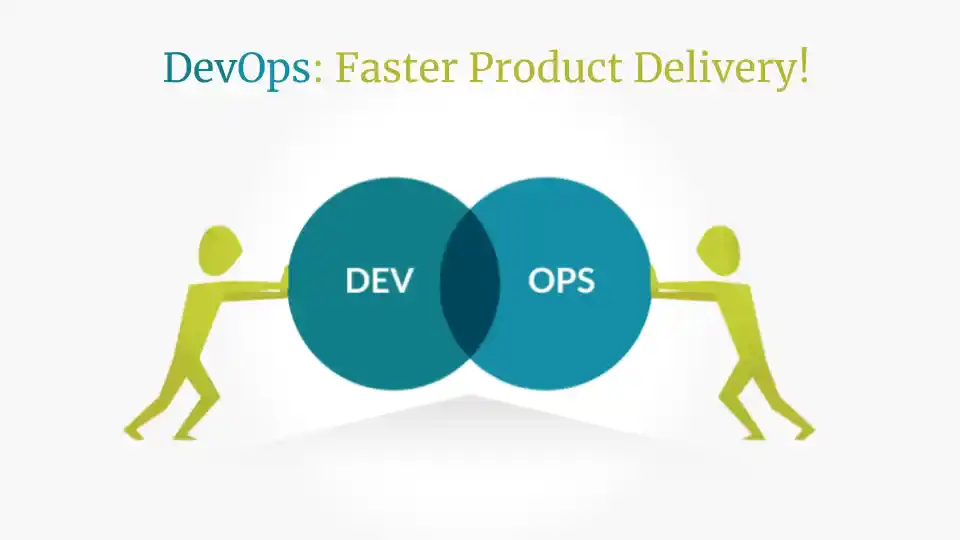Table of Contents
In the ever-evolving digital landscape, the term “DevOps” is no longer just a buzzword—it’s a revolution. For too long, businesses have been caught in a Catch-22: on one hand, they need to innovate and stay ahead of competitors; on the other, they must manage complex IT infrastructure without getting bogged down by administrative tasks. DevOps emerged as a game-changer, offering a holistic approach that bridges the gap between development and operations teams.
But what exactly does DevOps mean for your business? And why is it transforming how companies operate today? Let’s dive into the transformative impact of DevOps on business success.
1. How DevOps Transforms Business Processes

DevOps isn’t just about setting up servers and coding—it’s a cultural shift. It’s about breaking down silos between development, operations, and other key departments. With DevOps, teams can collaborate more effectively, iterate faster, and deliver products that meet customer needs.
One of the most significant impacts of DevOps is on business productivity. By automating workflows, reducing downtime, and enabling continuous integration and deployment (CI/CD), DevOps allows businesses to launch applications faster than ever before. This leads to a smoother product lifecycle, from development to deployment to maintenance.
But beyond just speed, DevOps fosters innovation at its core. When teams are freed from the administrative burdens of IT infrastructure, they can focus on building innovative solutions that address real business challenges. For example, cloud-native technologies and microservices have become integral to modern applications, but it’s DevOps practices like continuous delivery (CD) that make these technologies viable.
2. From Compliance to Collaboration
Another critical aspect of DevOps is its emphasis on collaboration and communication across teams. In a typical business environment, IT teams often operate siloed from other departments, leading to misaligned goals and inefficiencies. With DevOps, this dynamic shifts.
By prioritizing collaboration, DevOps encourages cross-functional teamwork that leads to better alignment between technical solutions and business objectives. For instance, data-driven decision-making has become a cornerstone of modern businesses, but it’s only possible when teams can integrate insights from IT with broader business intelligence systems.
Moreover, DevOps ensures that IT infrastructure is secure without compromising on innovation. Tools like network monitoring and application security testing are integral to DevOps practices, ensuring that businesses don’t sacrifice speed for security—or vice versa.
3. Case Studies: Why Companies Are Adopting DevOps Now

To illustrate the impact of DevOps on business success, let’s look at a few case studies:
- Case Study 1: A global e-commerce company experienced a 40% reduction in downtime after adopting DevOps practices. This improvement allowed them to meet customer demand more effectively and increase revenue by up to 20%.
- Case Study 2: A financial services firm implemented microservices architecture using DevOps principles, which improved scalability and reduced the risk of service disruptions during critical operations.
- Case Study 3: A manufacturing company adopted continuous delivery (CD) practices, enabling them to deliver custom solutions faster than competitors. This led to a 30% increase in customer satisfaction due to personalized product configurations.
These examples highlight how DevOps isn’t just an optional add-on—it’s the foundation of modern business success.
4. Why Now is the Time to Adopt DevOps?
For businesses that have been resisting change, now may be the ideal time to embrace DevOps. With technological advancements accelerating rapidly, delays in adopting new solutions can become costly. By leveraging DevOps, companies can:
- Streamline workflows and reduce operational overhead
- Enhance collaboration across teams
- Deliver innovative solutions faster than ever before
- Build resilient and scalable IT infrastructure
In short, DevOps is not just a trend—it’s a necessity for businesses that want to thrive in the digital age.
5. The Future of DevOps: A Road to Resilience
As the digital landscape continues to evolve, so too will the role of DevOps. The integration of AI and machine learning with DevOps practices is already underway, enabling predictive analytics, automated scaling, and real-time monitoring. These advancements promise to make businesses even more resilient in an increasingly unpredictable environment.
Moreover, the shift toward cloud-native applications and serverless architecture is accelerating. With DevOps as the backbone, businesses can take full advantage of these innovations while maintaining operational excellence.
Conclusion
In a world where speed, innovation, and resilience are critical, DevOps has emerged as the transformative force that drives business success. By breaking down silos, fostering collaboration, and enabling rapid iteration, DevOps empowers businesses to overcome challenges and deliver value at an unprecedented pace.
Whether you’re just exploring DevOps or looking to refine your practices, this game-changer shouldn’t be left for the competition. It’s time to take control of your business’s future by embracing the power of DevOps today.